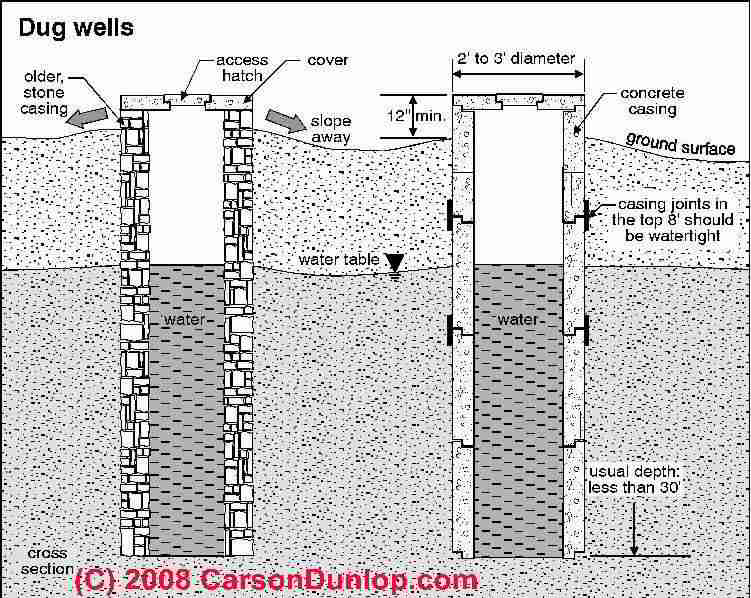Clarity,
Office 17622,
PO Box 6945,
London.
W1A 6US
United Kingdom
Phone/ Voicemail:
+44 (0)20 3287 3053 (UK)
+1 (561) 459-4758 (US).


Hi, Hilary:Hexagram 9 says,
‘Small taming, creating success.The dense clouds without rain suggest that what we need is tantalisingly close, just not quite here yet.* Those ‘Western altars’ are probably a subtle reference to the Zhou, people of the West...
Dense clouds without rain
Come from my Western altars.’
A fecundity rite which was performed at an altar outside of town jiao 郊 where sexual intercourse (-> jiao 交) was involved.
Schuessler: ABC Etymological Dictionary of Old Chinese
Hi, Hilary:Huh - I've done lots of reading on 'outskirts altars' without encountering the sexual connotation. Is this mentioned anywhere except Schuessler?
20. "Notes à propos du Kao-mei" Annuaire 1966-1967 de l'Ecole Pratique des Hautes Etudes, Ve section, Sciences religieuses. Vol. 74. Paris, 1966. Pp. 5-34.
The Kao-mei JH^ deity was the supreme go-between for young couples, to whom offerings were made to assure male progeny. The ancient spring festival in the god's honour is described by Marcel Granet in Fêtes et Chansons anciennes de la Chine and discussed by Henri Maspero ("La société et la religion des Chinois anciens et celles des Tai modernes", in Le Taoïsme et les religions chinoises, Paris: Gallimard, 1971, pp. 232—243; trans., Taoism and Chinese Religion, University of Massachusetts Press, Amherst, 1981, pp. 207-217). In this rich study of ancient marriage customs, hierogamies, erotic symbolism and mother deities, Kaltenmark shows that the term Kao-mei actually designated the mothers of dynastic ancestors such as Chien-ti and Chiang-yii.
Source: Cahiers d'Extrême-Asie, Vol. 4, 1988. pp. 8-17.
There must be some good reason for this phrase to recur word-for-word in 62.5. I'm at a loss to see what it could be, though. The only obvious thing they have in common is 'smallness', being compelled to adapt to circumstances… that's obviously relevant to having to wait on the weather. But there must be more to be said.
Page 61 onwards. Mind you, he isn't the only one speculating about it as he cites other Chinese academics and exegetes.
Definitely. I will invest in a copy as soon as it's available.Charly IS a sexual encounter.
Charly, you need to write The Erotic I Ching.
(said with friendly respect) :bows:
Downloaded and reading, thank you!...
And the "Notes à propos du Kao-mei", in french of course, here:
More source or quotes assap.
All the best,
Charly
I live in an arid climate, with prevailing winds out of the Southwest.
The winds cross the desert landscape, heat up, and then cool when they
start to climb in elevation. Our driest month is June, when the clouds come
bringing lots of hope and subsequent disappointment. For me it's easy to feel
the message here.
Oh, Bruce!Charly IS a sexual encounter.
Charly, you need to write The Erotic I Ching.
(said with friendly respect) :bows:
Ah - right! My first irreverent thought is 'pigs probably fell down wells from time to time'. But it's true that I've thought for some time that there's a lot of play, especially in the Wings, on the topological similarity between 47 and 48. A well is a deep dark hole, when all's said and done. (Though it seems unwise to say so when Charly's around.)
Very very interesting point about the lining of wells, though. If that really never happened in Zhou times, my idea of line 4 is completely wrong. I've been imagining the investment of time in shaping and baking special tiles for the job, and how that might seem like 'overdoing it' (zhi 28). (But maybe it was done with something less durable than brick/tile?)
China Culture - Well-Digging Industry
... In the ancient times, well-digging rings were used as the well wall, which were replaced by spiles later, and then bricks or stones ... a carpenter was hired to clean the well when it got dirty
Source: http://kaleidoscope.cultural-china.com/en/45Kaleidoscope1867.html
Definitely. I will invest in a copy as soon as it's available.
Downloaded and reading, thank you!
Mao says:
... On the day of the arrival of the dark birds [=swallows] a Grand Victim offering [of an ox, goat and pig] was made to the Jiao mei. The Son of Heaven personally atended the rites. The Queen Consort led the nine concubines and they were favored by him [i.e. had sexual relation with him] ...
D.R.Knetchges
Page 20.
... In the ancient times, well-digging rings were used as the well wall, which were replaced by spiles later, and then bricks or stones ...
...next question: what is a 'well-digging ring'? Anyone know?



Shaughnessy said:Thousands of wells from all periods of China's ancient history have been excavated over the past several decades, and they display certain clear technological advances over the course of that history. Most important for our purposes here, until the Spring and Autumn period, wells invariably had only dirt walls. It was not until the end of the Spring and Autumn period and beginning of the Warring States period (i.e., the fifth century B.C.) that wells began to be lined with brick or earthenware tiles. Therefore, if the Zhouyi were first composed in the Western Zhou period (1045-771B.C), as traditions regarding it affirm, then the received reading "the well is bricked" would necessarily be anachronistic based on the cultural awareness of teachers and scribes many centuries later.
I find it hard to imagine, too. I remember reading in Lindqvist about the need for the wooden frame to prevent the silt walls from collapsing as you dig. The idea of a clay/plaster lining is a good one.I find it hard to imagine a well holding together with only dirt for its lining. Ancient middle eastern wells were either dug into rock and filled with water, as a cistern, or the dirt walled well that went into the earth's water table would be lined with a lime plaster or clay to keep water from leaking out. Such wells would develop cracks from time to time and would require repairing of this plaster with more plaster or clay. Later, tiles were used. I wonder if similarly, clay was used in ancient China, and when examined thousands of years later were assumed to simply be earthen/dirt. For sure, water would seep through plain dirt unless a hardened surface was created.
It's true it does look like a string bag - it does at http://www.internationalscientific.org/CharacterEtymology.aspx?characterInput=畜 too, especially the oracle character - but weird that they are labelling as 'bag' the component that, if you follow the link, they agree means 'field'. (I'm attached to the 'field' part because I find 'farming' to be the most useful single concept for the character - that combination of restraining and nurturing/growing.)Hilary - Here is a nice breakdown of the etymology of 畜 - http://en.wiktionary.org/wiki/畜
Hilary:...next question: what is a 'well-digging ring'? Anyone know?
Ancient Chinese drilling
by Oliver Kuhn, Divestco Inc
The first recorded salt well in China was dug in Sichuan Province, around 2,250 years ago. This was the first time water well technology was applied successfully to the exploitation of salt ...
About 2,000 years ago the technology began to evolve. The inhabitants began to dig wells with percussive drilling systems instead of digging them by hand with shovels
Source: http://www.epmag.com/Production-Drilling/Ancient-Chinese-drilling_4266
Hi, Hilary:... So no well rings of any description, apparently - though I did wonder if they might've used something more fragile than tiles/bricks to line the well, that wouldn't have survived for the archaeologists to find.
Hex.48: let the roots go deeper than deep, where they will find the primeval waters. The picture of the hexagram name resembles the magic square, one of the mandala’s representing cosmic order. Many peoples have this image in varying forms. The waters from the well are connected with cosmic values, they bring up myth. Therefore their working is inspiring, they encompass much more than thought can imagine.
LiSe
Source: http://www.yijing.nl/i_ching/hex_33-48/47-48.htm
... ancient wells were round. The best-preserved one stems from the Zhou period, and it was even lined with half-meter-high rings of pottery.
... two wells, the earliest found in China to date. They are ... contemporary with the oracle bones.
... Like all other wells already found, the wells in Gaocheng are round, but – and this is what is exciting – right at the bottom lies a square frame made of logs placed in four or five layers on top of each other. Together, their shape agrees entirely with that of the character for well.
Cecilia Lindqvist, "China, empire of living symbols"
It's true it does look like a string bag - it does at http://www.internationalscientific.org/CharacterEtymology.aspx?characterInput=畜 too, especially the oracle character - but weird that they are labelling as 'bag' the component that, if you follow the link, they agree means 'field'. (I'm attached to the 'field' part because I find 'farming' to be the most useful single concept for the character - that combination of restraining and nurturing/growing.)
Hi, Courtney:I am not sure why they are labeling a field as a bag.
However, symbolically, my mind thinks of 2.4
I believe that PLOWED LANDS and TIED BAGS have both connectons with THE FEMALE PRINCIPLE and, by consequence, also with THE MALE PRINCIPLE.
I wonder what TIE THE BAG / SHUT THE PURSE can mean in H.2 The FEMALE «PRINCIPLE».
Clarity,
Office 17622,
PO Box 6945,
London.
W1A 6US
United Kingdom
Phone/ Voicemail:
+44 (0)20 3287 3053 (UK)
+1 (561) 459-4758 (US).